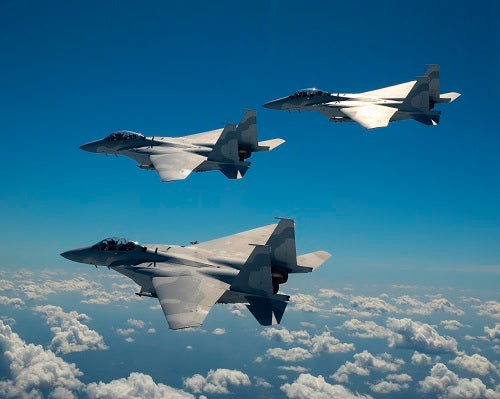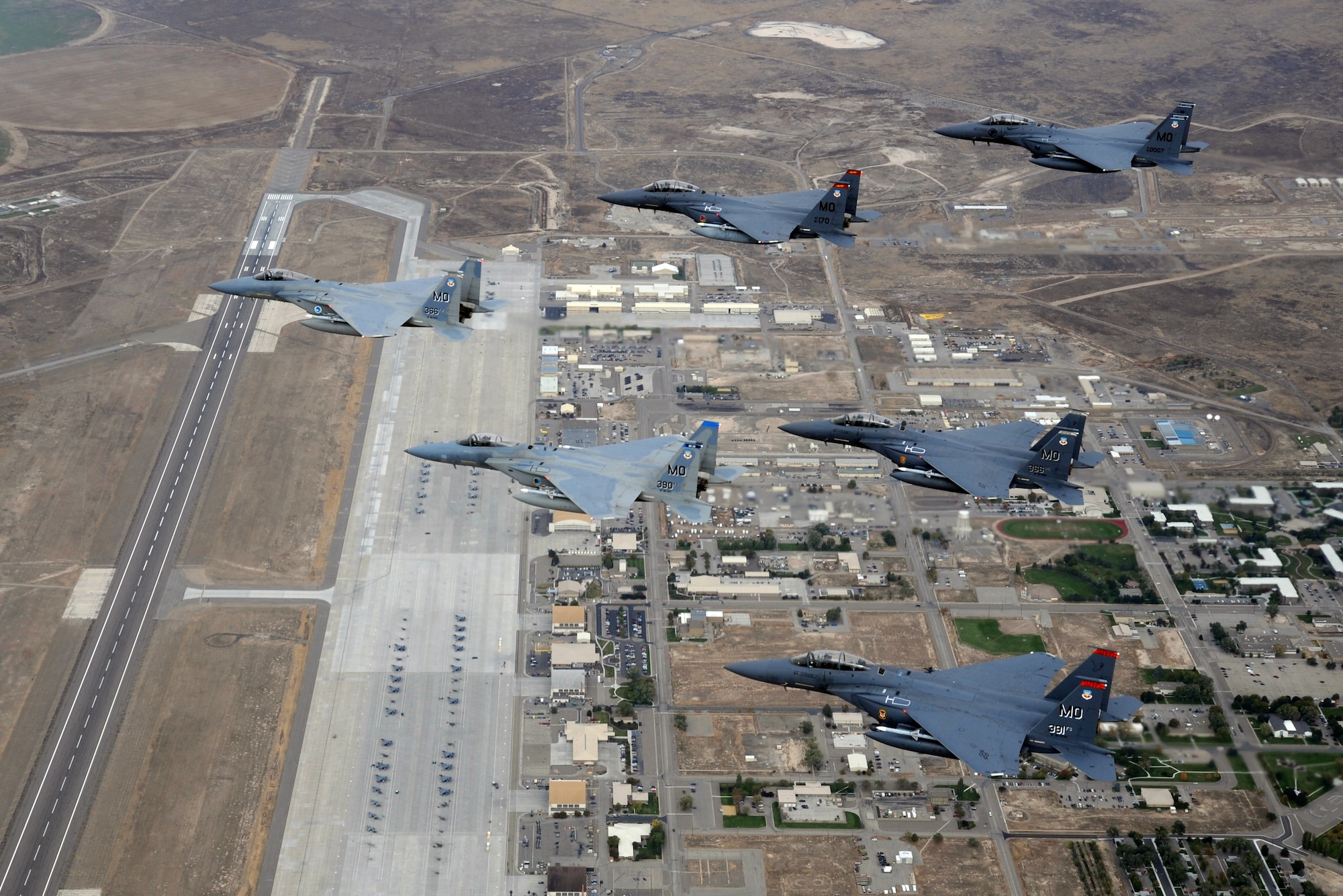Qatar Air Force Base Idaho: Pete Hegseth Announces Training Facility Deal
Qatar Air Force Base Idaho: Pete Hegseth Announces Training Facility Deal

Defense Secretary Pete Hegseth announced a groundbreaking agreement on October 10, 2025, allowing Qatar to build an air force training facility at Mountain Home Air Force Base in Idaho. This historic deal marks a significant expansion of U.S.-Qatar military cooperation and has sparked both support and controversy across political circles.
The Qatar-Idaho Military Partnership: Key Details
The newly signed agreement enables the Qatari Emiri Air Force to construct a dedicated training facility at Mountain Home Air Force Base, located approximately 40 miles southeast of Boise, Idaho. This facility will serve as a training ground for Qatari pilots operating advanced F-15QA fighter jets purchased from the United States.

During the announcement ceremony at the Pentagon, Hegseth stood alongside Qatari Minister of Defense Sheikh Saoud bin Abdulrahman Al Thani, emphasizing the strategic importance of this partnership. "The location will host a contingent of Qatari F-15's and pilots to enhance our combined training, increase lethality, interoperability," Hegseth stated.
Strategic Rationale Behind the Idaho Location
Mountain Home Air Force Base was selected for several strategic reasons. Qatar's relatively small land mass—slightly smaller than Connecticut—severely constrains the frequency and quality of training its air force can conduct domestically. The Idaho base offers vast desert terrain similar to Qatar's arid landscape, making it ideal for realistic training exercises.
The facility will operate under the command of the U.S. 366th Fighter Wing, ensuring American oversight and control over all operations. This arrangement maintains U.S. sovereignty while providing Qatar with essential training capabilities for their newly acquired F-15QA aircraft.
Political Backlash and Clarifications

The announcement immediately triggered significant backlash from prominent MAGA figures and conservative commentators. Laura Loomer, a influential Trump ally, called the arrangement an "abomination" and criticized allowing "terror financing Muslims from Qatar a MILITARY BASE on US soil." Steve Bannon echoed similar concerns, stating there should "never be a military base of a foreign power on the sacred soil of America."
Hegseth's Rapid Response
Facing mounting criticism, Hegseth quickly issued a clarification on social media, emphasizing that "Qatar will not have their own base in the United States—nor anything like a base. We control the existing base, like we do with all partners." This clarification aimed to address misconceptions about foreign sovereignty on American soil.
Historical Context: Foreign Military Training in the U.S.
The Qatar arrangement follows established precedents for foreign military training on American soil. Several allied nations currently maintain training presences at U.S. military installations:
- Germany: Maintains a tactical training command at Sheppard Air Force Base in Texas since 1958
- Singapore: Hundreds of personnel train at Mountain Home Air Force Base as part of their F-15 program
- NATO Allies: Pilots from the Netherlands, Britain, and other allied nations regularly train in the United States

These arrangements demonstrate that foreign military training partnerships are not unprecedented, though the Qatar deal has attracted more attention due to current political sensitivities.
Qatar's Role in Recent Diplomatic Successes
The training facility agreement coincides with Qatar's crucial role in mediating the recent Israel-Hamas ceasefire deal. Hegseth acknowledged Qatar's contributions, stating, "No one other than President Trump could have achieved the peace—what we believe will be a lasting peace—in Gaza, and Qatar played a substantial role from the beginning."
Broader U.S.-Qatar Relations
The military partnership reflects the Trump administration's increasingly close relationship with Qatar. Recent developments include:
- President Trump's executive order "assuring the security of the state of Qatar"
- Qatar's substantial role in the Israel-Hamas peace negotiations
- The controversial acceptance of a luxury Boeing 747-8 from Qatar for presidential use
Technical and Operational Aspects

The Qatari facility will specifically support F-15QA "Ababil" aircraft operations. These advanced fighter jets represent some of the most sophisticated F-15 variants ever produced, featuring cutting-edge avionics and weapons systems. The training program will focus on:
- Advanced air-to-air combat techniques
- Live-fire exercises in Idaho's extensive training ranges
- Joint operations with U.S. forces
- Maintenance and technical support procedures
Economic and Strategic Implications
The facility construction will bring significant economic benefits to the Mountain Home region, including job creation and increased local spending. From a strategic perspective, the arrangement strengthens U.S.-Qatar military interoperability and demonstrates American commitment to Gulf security partnerships.
The deal also reinforces Qatar's position as a key U.S. ally in the Middle East, particularly given the country's hosting of the massive Al Udeid Air Base, which serves approximately 13,000 American military personnel.
Frequently Asked Questions
Will Qatar control any part of Mountain Home Air Force Base?
No. The U.S. military maintains complete control over Mountain Home Air Force Base. Qatar will only operate a training facility within the existing American base under U.S. oversight.
How many Qatari personnel will be stationed in Idaho?
Specific numbers haven't been disclosed, but the arrangement will accommodate Qatari F-15 pilots and necessary support personnel for training operations.
Is this the first foreign military presence at Mountain Home?
No. Singapore has maintained a significant training presence at Mountain Home Air Force Base for years as part of their F-15 pilot training program.
What security measures will be in place?
All foreign personnel undergo thorough vetting processes. The facility operates under U.S. military command and follows established security protocols for international training partnerships.
How long will this arrangement last?
The duration of the agreement hasn't been publicly specified, though similar international training partnerships typically operate under multi-year arrangements subject to regular review.
Looking Forward: Future of U.S.-Qatar Military Cooperation
The Idaho training facility represents a significant milestone in U.S.-Qatar defense relations. As both nations continue to face evolving security challenges in the Middle East, this partnership demonstrates the practical benefits of military cooperation and shared training resources.
While political controversies may continue to surround the arrangement, the operational and strategic benefits of enhanced military interoperability between allied forces remain clear. The facility will serve as a model for future international military training partnerships and strengthen the foundation for continued U.S.-Qatar security cooperation.
As construction begins on this groundbreaking facility, both nations will closely monitor its impact on regional security dynamics and the broader framework of American military partnerships in an increasingly complex global security environment.